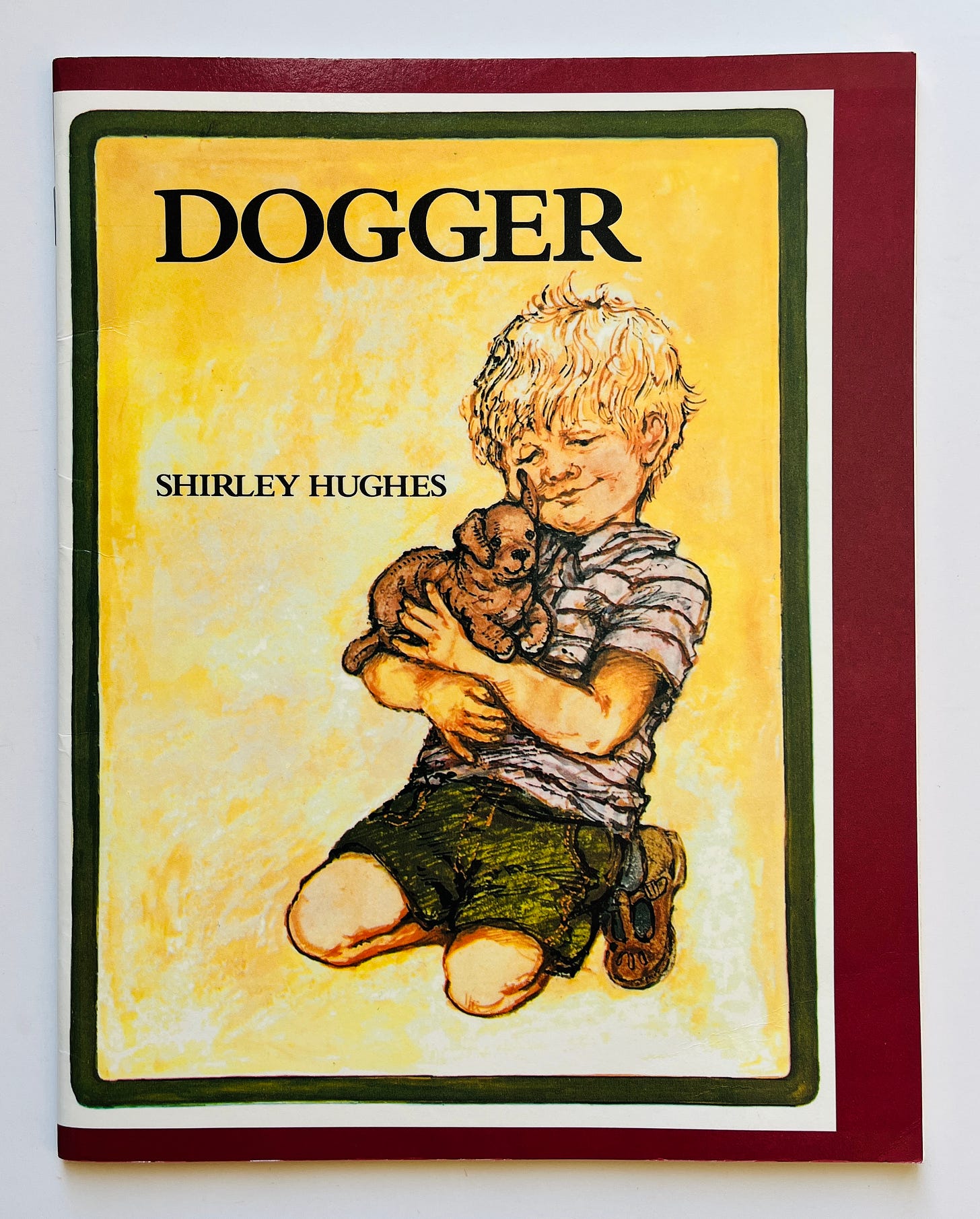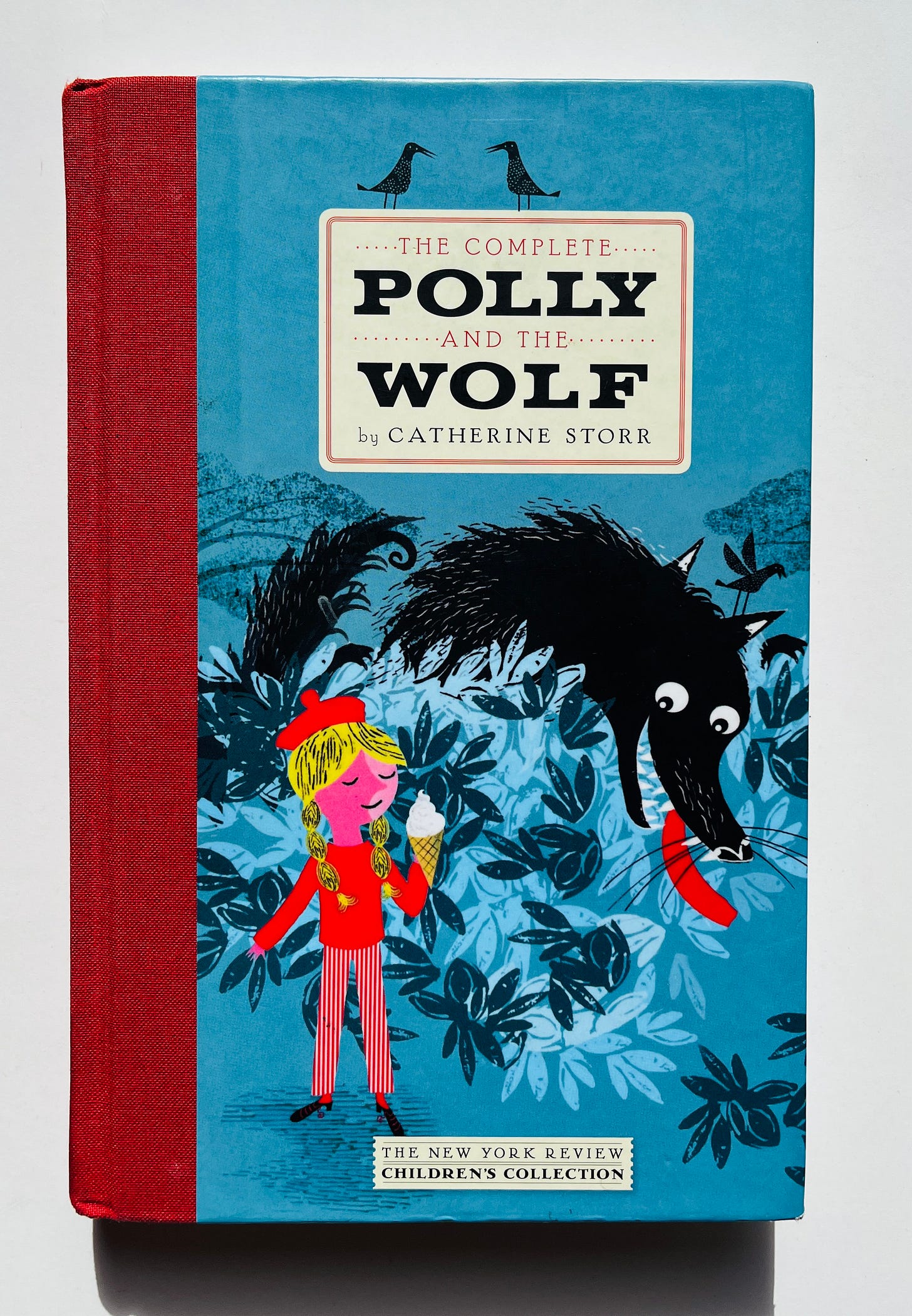The other day I read somewhere that “reading books and buying books are two different hobbies,” and I immediately thought, oh, ohhhhhh, oh yes. I have a problem with both and absolutely no intention of fixing either 😂
I normally can’t even remember the last book I bought because I buy so many, but I will say that I recently picked up Plague-busters! Medicine’s Battles with History’s Deadliest Diseases by Lindsey Fitzharries and Adrian Teal, because my 7yo saw it at our favorite local used bookstore, passed it up because she “didn’t want to have nightmares,” but then I couldn’t stop thinking about it, so of course I went back for it. It recently won a 2023 Best Stem Book Award from the Children’s Book Council, so, SEE? I was right. (I can justify nearly any biblio-purchase, given enough time — not that I feel the need to justify my biblio-purchases to anyone, ever.)
What books have you bought lately? Anything I should absolutely know about, plague titles or otherwise?
Dogger by Shirley Hughes (1977)
I’ve recommended Dogger so many times to so many people that sometimes I forget I’ve never actually reviewed it here. Almost anything Hughes ever wrote is pure gold for preschool to early elementary kiddos — it’s incredible how much children love her books — but Dogger, with its tender themes of love, loss, and sacrifice, is among her best.
One day, Dave brings his beloved stuffed toy, Dogger, to the local fair (depicted with Hughes's typical, maximum level of detail in her expressive watercolor illustrations). Caught up in the excitement of the day, he loses Dogger, only to find him on a table of a merchant selling toys. As he watches another child walk away with the item most precious to him, his sister steps in to trade — Dogger for a stuffed animal she won in a game — saving Dogger, and of course, the day.
If this sounds simple, it is, but it’s also not. There’s a gentle but real arc to the story here — readers can feel Dave’s loss, his despair over losing Dogger forever, and the touching act of sibling love that provides comforting resolution. (As someone who still sleeps with the bear I received for Christmas when I was 6yo — which I would save in a fire above all other material things, even my wedding ring — the idea that Dave would lose Dogger forever causes me real anxiety, so I’ve always found the ending reassuring in just the right way.)
Dogger is a timeless classic — I’ve recommended it for ages, and I don’t plan to stop now.
Jingle Dancer by Cynthia Leitich Smith, illustrated by Cornelius Van Wright and Ying-Hwa Hu (2000)

A young girl named Jenna hopes to dance at the next pow-wow, making the same tink, tink, tink, tink sound as her Grandma Wolfe does in her dress, but first, she needs to find jingles. Jenna decides to ask various women in her community for help. Each says yes, each contributes one row of jingles from their own jingle dress, each has some reason they can’t attend to pow wow but each asks Jenna if she will dance for them (Jenna of course says yes).
Every night for a week following, Jenna and Grandma Wolfe sew on the borrowed jingles, and Jenna practices “her bounce-steps,” until finally the pow wow arrives. Jenna dances for each woman who supported her: for Great Aunt Sis whose legs ache, for Mrs. Scott who is busy selling fry bread, for cousin Elizabeth who is working on a big case for her law firm, and of course for her grandmother, whose love warms like the sun. (Hu’s dreamy, saturated watercolors show not only the relationships and work that have gone into this moment but also the pride and emotion Jenna feels in the dance.)
An author’s note at the back states that Jenna is a member of the Muscogee Creek Nation and is also of Ojibway [sic] descent — Leitich Smith, a member of the Muscogee Creek Nation herself, has infused this beautiful, loving story about kinship and community with details about these cultures that will engage preschoolers through elementary-aged readers.
Midnight Babies by Margaret Wild, illustrated by Ann James (2001)

“At midnight, when absolutely anything can happen, Baby Brenda bounces out of bed. She tiptoes past her sleeping mom and dad, does a dance outside her big sister Vanessa’s room, then slides down the stairs to the kitchen.”
If you’re up for a middle-of-the-night party involving sneaking out of your house with a pile of food, which you use to entice your friends and wear like a hat on your head, look no further than the Midnight Café: gathering place of Baby Brenda, her nemesis Baby Mario, and their baby squad.
This is a fun fantastical romp that’s a sure-fire toddler hit (though no one in my house has gotten tired of it and we’re well beyond the toddler years). James’ fuzzy, funny illustrations give extra flavor to the story — I still laugh at the moment where Baby Brenda returns home and gets stuck for awhile in the cat door — which is nothing short of a feast.
The Complete Polly and the Wolf by Catherine Starr, illustrated by Marjorie Ann Watts and Jill Bennett (1955)
Do not let the fact that these four novels — collected here in one lovely volume from the esteemed NYRB Kids — are nearly seventy years old put you off: this whimsical, hilarious take on the fraught relationship between the Big Bad Wolf and a smart, witty little girl named Polly is a total delight.
According to the book's synopsis, when Catherine Storr’s daughter was very small, she was afraid of the wolf under her bed, so every night, her mother would tell her a story in which Polly outwitted the wolf. Those reassuring stories told decades ago became this excellent collection, wherein the persistent, obsessed Wolf continually tries to outwit Polly in increasingly complicated ways — so he can eat her, of course — and she, slowly growing older and wiser, wins every time.
One of the highlights here is the way the duo finds themselves in unique situations that subvert expectations and challenge stereotypes, especially when you consider these books were written in the middle of the 20th century. The interactions between Polly and the Wolf are cleverly written, and the outcomes are often surprising and humorous — encouraging readers to confront their own assumptions and view (er, listen to) familiar old tales with a fresh and entirely refreshing perspective.
Something Like Home by Andrea Beatriz Arango (2023)
As far as I’m aware, books about foster children who live with extended family members (as opposed to previously unknown caregivers) are few and far between, and this title might be the only one depicting that situation as a novel in verse. Somehow, though, the form adds much to the story here — where a lost girl finds an equally lost dog, and they help one another learn to navigate new and painful situations.
Laura’s parents struggle with drug addiction, so when she’s placed in foster care with her aunt — who has high expectations, a different kind of life, and a dedication to speaking Spanish that annoys Laura from the start — it’s hard to explain to the people around her, not that there are that many to begin with. Slowly, though, Laura sets goals (to train the puppy she finds on the street to be a therapy dog) and keeps the faith (that she’ll be reunited with her parents), and learns that sometimes finding family is a choice to let people love you.
Though the topic here is serious, Arango does an excellent job of making it accessible without being too heavy — a true middle-grade read, equal parts reality and hope.
Happy reading!
Sarah
P.S. All Bookshop.org links are affiliate ones — I receive a small commission if you make a purchase. This is also a reminder that I have a ton of booklists there to help you find titles for kiddos from birth to age 10, on all sorts of topics.







I can always count on you to help me discover new (and new to me) reads. The only one on this list that I’ve read is Something Like Home. Lovely story!
Every list you publish and the beautiful words you use to describe them makes my heart sing.